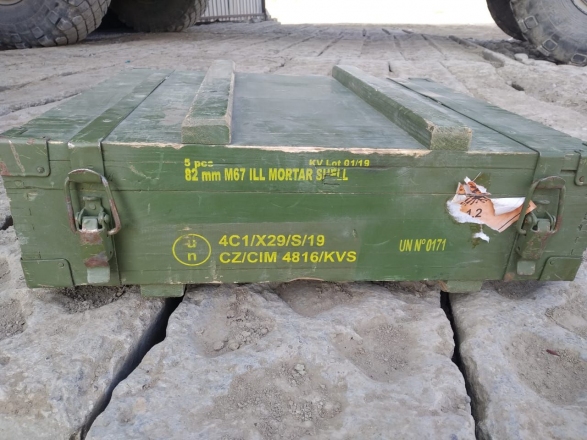One of the main provisions of the Azerbaijani-Turkish propaganda during the war unleashed by Azerbaijan in Artsakh since September 27 is the involvement of Kurdish militants by Armenia. They particularly mean the militants of the Kurdish Workers’ Party (PKK), which has been fighting against Turkey for decades. In addition, information is being circulated on bringing weapons and ammunition from Iraq to Armenia.
The Fact Investigation Platform has studied the validity of these claims.
Kurdish militants on the Armenian side
The theory of the involvement of Kurdish militants, particularly members of the Kurdish Workers’ Party, has been put forward by various Turkish-Azerbaijani circles, at least since the early 1990s, and has been repeatedly refuted at both official and expert levels.
Along with the resumption of large-scale hostilities in Artsakh, Azeri-Turkish official sources “revived” the thesis that Armenia is recruiting and involving Kurdish militants.
Thus, on September 29, citing anonymous Turkish sources from the defense sector, the Turkish state-run Anadolu Agency wrote that 300 Kurdish terrorists had allegedly been transferred to “occupied Nagorno-Karabakh” to train Armenian troops. According to the same source, they belong to the PKK and YPG (People’s Self-Defense Units, the irregular armed forces of the Syrian Kurds) and were brought from the Middle East.
In an interview with Turkish state television TRT Haber on October 5, Azerbaijani President Ilham Aliyev stated that they had intelligence data on the presence of PKK militants in Karabakh. On the next day, the State Security Service of Azerbaijan published a recording, which allegedly proves the participation of foreign mercenaries, in particular, Kurdish terrorists from Syria and Iraq in the war.
Ariz Kader, a Kurd and a peace and conflict expert at Uppsala University in Sweden, posted a detailed analysis of the recording on Twitter. He described the recording as “poor quality” manipulation and made several remarks. According to Kader, the conversation is in the central Kurdish dialect of Sorani, while the majority of PKK militants speak the Kurdish dialect of northern Kurmanji. He also noted that the text translation mentions that the militants allegedly came to Vardenis from the Kurdish city of Sulaimaniyah in Iraq, but Sulaimaniyah is not mentioned anywhere in the recording. Kader concludes that the recording is most likely fake.
Moreover, an article published on the Haqqin.az news website affiliated with the Azerbaijani authorities on October 16 states that Kurdish PKK militants are already fighting on the battlefield against Azerbaijan. As a proof, the video of the volunteer detachment of the Yezidi community of Armenia is attached, with Armenian and Yezidi flags.
Thus, the accusations made by Turkey and Azerbaijan against the alleged involvement of Kurdish militants by the Armenian side are baseless; so far no evidence has been presented to prove this claim.
Weapons from Iraq
The Azeri propaganda machine is circulating another claim about the supply of weapons and ammunition from Iraq to Armenia.
The pro-government Haqqin.az website claims this time that the photos at their disposal prove that the weapons abandoned by the Armenian side contain mortar shells brought from Iraq. “It is noteworthy that the mortar shells were produced in Baghdad, which is a proof that Armenia receives weapons from Iraq,” reads the Haqqin.az article, where the following two photos are posted.
However, the shells in the photo were actually made in the countries of the former Yugoslavia. This type of shells are produced by UNIS-GROUP, a state-owned company based in Sarajevo, Bosnia. Yugoimport-SDPR J.P., owned by the Government of Serbia, is in charge of their sales.
Hence, the shells in the photo were not made in Iraq and they have nothing to do with that country.
Hovhannes Nazaretyan
[easy-social-share buttons="facebook,twitter,vk,telegram" counters=1 style="icon" point_type="simple"]
 FACTOMETER
FACTOMETER











